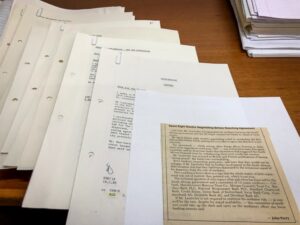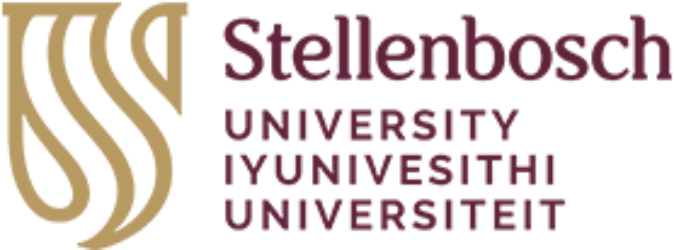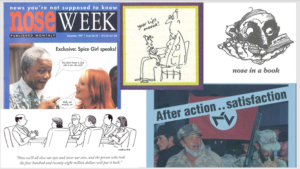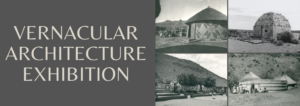
The following article was originally published as Resolving SA foreign debt crisis 1985/86 facilitated “orderly change to democracy” on the SU news site on 11/05/2021. The author is Daniel Bugan.
A unique collection recently launched by the Stellenbosch University (SU) Library sheds new light on how resolving the South African foreign debt crisis of 1985–1986 paved the way for Nelson Mandela’s release and the transition to democracy. It was donated to SU by Sir Claude Hankes (formerly Hankes-Drielsma) and was officially launched on Friday (7 May 2021).
Ms Ellen Tise, senior director of SU’s Library and Information Service, says the University is very privileged to receive a collection of this magnitude and historical value. It tells the story of the sovereign debt crisis that struck apartheid South Africa in the latter half of 1985, which forced government to declare a temporary moratorium on all short-term debt repayments.
Tise explains: “Due to overseas perceptions of South Africa’s political, domestic and economic outlook during the debt crisis, a major withdrawal of foreign bank credit to South African banks and businesses ensued. A ‘standstill’ on capital repayments in respect of the $14 billion foreign debt held by the banks was proclaimed. Negotiations with the banks ensued, and Dr Fritz Leutwiler, former president of the Swiss National Bank, was appointed as independent mediator, since several banks refused to deal directly with South Africa for political reasons.”
Leutwiler, in turn, requested Sir Claude Hankes, then chair of the Price Waterhouse and Partners management board, to mastermind the strategy for him and appointed the firm to provide the infrastructure. Sir Claude, knight commander of the Royal Victorian Order, had previously been involved in resolving the debt crises of Brazil and the Philippines respectively, which resulted from irresponsible lending policies by Western banks.
Significant addition to SU Library
Described as an “episode in the end game of the anti-apartheid struggle” (DD Bradlow, Don’t waste a serious crisis: lessons from South Africa’s debt crisis, 2016), the role of the 1985 debt crisis in South Africa’s transition to democracy should not be underestimated.
Says Sir Claude: “Few have ever fully understood how critical the resolution to the crisis was for the future of this great country. Far from prolonging the apartheid era, it facilitated the orderly change that took place.
“The challenge was to agree a rescheduling of South Africa’s debt based on the economic and political reality, unlike the rescheduling of debt to many other countries, where banks had forced unrealistic terms, which resulted in rescheduling again and again, at great cost. Against all odds, an agreement was reached.”
According to Tise, the collection illustrates just how far-reaching and potentially threatening the crisis was for the National Party government, and the key part it played in South Africa’s history.
“The process of dealing with the crisis seems to have been run as a rather clandestine operation, so the collection is likely to present new evidence to researchers interested in the issue. Correspondence with individuals such as business magnate Dr Anton Rupert, British-born anti-apartheid cleric Reverend Trevor Huddleston as well as former president PW Botha forms part of the collection and shows the breadth, depth and reach of the debt crisis.”
The withdrawal of lending to South Africa brought the country to the brink of even greater chaos.
“The collection is a record of how the crisis was averted,” says Tise. “It provides insight into how, with the help of Anton Rupert and Harry Oppenheimer in South Africa, the strategy to deal with the US banks’ unrealistic approach resulted in a lasting agreement. It became the only rescheduling of sovereign debt that did not have to be renegotiated subsequently.”
Sir Claude adds that the collection also shows how the crisis and the handling thereof “subsequently allowed British prime minister Margaret Thatcher and German chancellor Helmuth Köhl to send an ultimatum to president Botha to stand down” in order for South Africa to become a democracy and allow for Nelson Mandela’s release. In fact, included in the collection is a letter from Nelson Mandela to Leutwiler, written in 1994 in Mandela’s capacity as president of the African National Congress. In the letter, Mandela acknowledges Leutwiler’s central role in renegotiating the country’s foreign debt in the 1980s, and putting pressure on former president Botha to release him and his comrades from prison.
Of immense research value
The collection, which comprises general correspondence, press cuttings, memoranda, timetables of events, and minutes of meetings, constitutes a unique resource for researchers.
“Currently, there is renewed interest in the history and impact of economic sanctions against South Africa, as well as interest in what factors led to the eventual power shift in the South African government at the time,” says Tise.
“This collection serves these research interests well and could cast new light on what happened behind the scenes between 1985 and 1987. It provides unique insight into the world sentiment towards South Africa and its apartheid policies at the time. Moreover, it reveals the role that South Africa’s sociopolitical turmoil played in discussions, and the decisive impact of social stability in the perception of a country’s creditworthiness.”
According to Prof Eugene Cloete, Deputy Vice-Chancellor: Research, Innovation and Postgraduate Studies at SU, this addition to SU Library’s Special Collections forms part of an ongoing diversification of the University’s library collections.
“Over the past few years, the manuscripts collections have been diversified by adding collections that tell the story of South Africa’s road to democracy and its more recent history.”
Some of these include the Frederik Van Zyl Slabbert, IDASA and digital Vrye Weekblad collections and, most recently, the donation of the entire run of Noseweek.
“This debt crisis collection is an excellent addition, and it is a privilege for the University to be entrusted with preserving this knowledge. It does more than simply add to our collections; it creates a community of learning and knowledge-seeking,” says Prof Cloete.
Glimpse of the past, and guidance for the future
Prof Thuli Madonsela, incumbent of the chair in social justice in SU’s Faculty of Law and guest speaker at Friday’s launch event, says the collection is of enormous geopolitical significance, and part of the seismic shift that led to democracy in South Africa.
“It gives us a glimpse of past events unknown until now, and also a sense of where we are going. It reminds us that, at some point, South Africa was at an inflection point where it needed to decide whether to go left or right, and the leaders concerned had to choose between fear and hope in order to move forward. It seems to me that they chose hope.”
Madonsela adds that South Africa happens to find itself at another inflection point today, having to deal with debt and other concerning issues.
“Do we increase our debt as a country so that we can pay for inclusive development in line with the sustainable development goals and our constitutional promise of a democracy that is founded on social justice and fundamental human rights?” she asks.
“And how do we deal with matters such as land and climate change? What seems to be emerging to me through the backstory of this collection is the power of communication, and that, going forward, we need to have sufficient consensus on these matters.”
The collection will be available for research purposes as from 1 July 2021 and is housed in the Manuscripts Section of SU Library’s Special Collections.
Make-up of the collection
The SA foreign debt crisis 1985/86 collection is divided into four broad categories:
- Banks. This section contains correspondence to and responses from chairpersons of overseas creditor banks, a summary of the banks’ technical responses, lists of banks contacted, and the debt amounts at each institution.
- Material relating to the South African Debt Standstill Coordinating Committee
- Off-the-record remarks and reflections on the entire process of resolving the crisis, providing a unique perspective
- General. This includes both general and administrative correspondence, press cuttings, speeches, reports, timetables of events, and more.
Items in all categories and subcategories will be arranged alphabetically or chronologically, depending on the type of material. Eventually, a full inventory of the collection, with descriptions and summaries of prominent material, will be made available, accompanied by author, title and subject indexes, to allow researchers easy access to specific items in the collection. The collection will also be digitised in due course.
Editor: Read more about the SA Debt crisis collection and its launch here.



